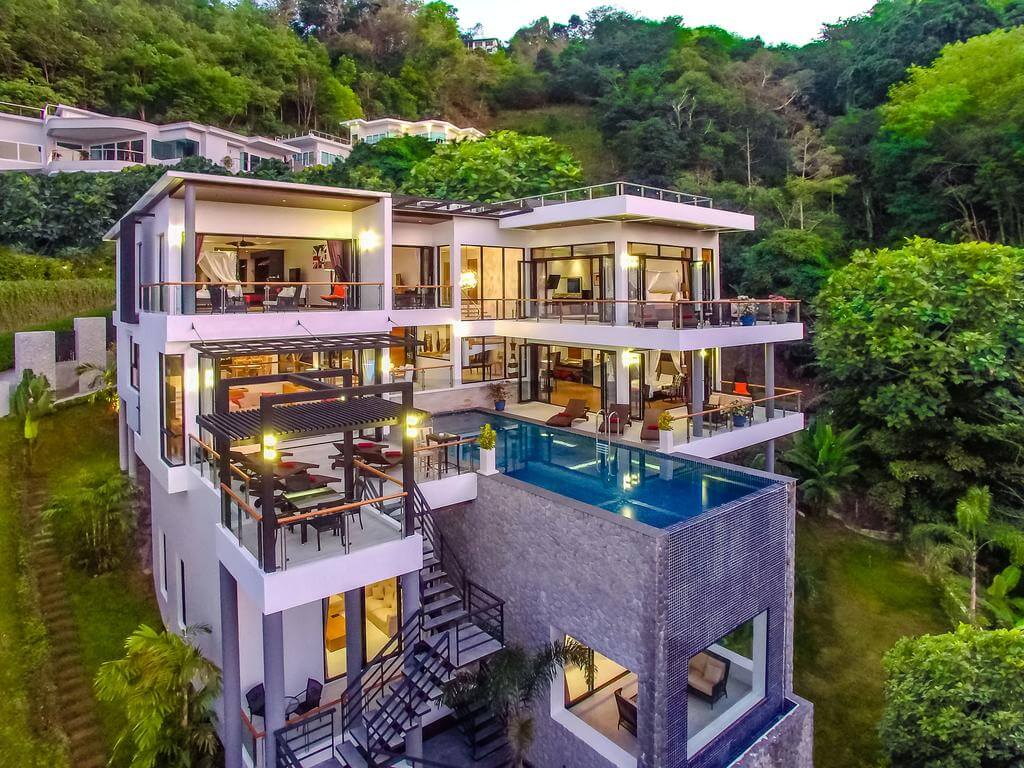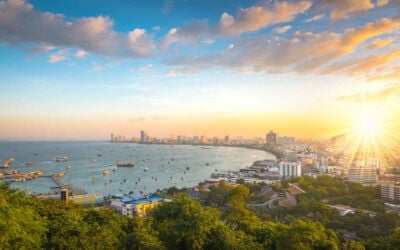Last updated August 1st, 2023.
The global economy faces several risks in 2023. Between higher interest rates, rising consumer debt levels, and absurd valuations in European and U.S. stock markets, investors are looking toward offshore markets to make money during a recession.
Buying foreign property, when done correctly, can diversify and preserve your wealth during periods of risk. Offshore property comes with numerous unique benefits – not all of them purely financial in nature.
First, a condo or house in another country is often an uncorrelated investment. There are countless different property markets throughout the world from Bangkok to Berlin. Many are not correlated with global equity markets.
If you’re a U.S. person, offshore real estate is also one of the few non-reportable assets you can buy. The IRS makes all its taxpayers report their foreign bank and brokerage accounts. Yet international property is exempt.
Having the ability to use your investment (and live there if you want) may seem like an obvious perk of owning real estate abroad. It can’t be understated though and I’d be remiss to not point out that you can’t use other assets as vacation homes or a bolthole.
Some countries will give you permanent residence, a long-term visa, or even citizenship if you invest a certain amount of money in the local property market as well.
With all that said, here are three important factors you should consider when buying offshore property.
If you’re looking for a specific country to buy offshore property, we couldn’t say because it depends on your own unique circumstances and investment profile. But we’ll certainly point you in the right direction.
What Are Your Investment Goals?
Do you want an investment or a vacation home? Would you like to rent your property, or will it just stay empty and appreciate over time? Is getting long-term residence important?
Those are the types of questions anyone purchasing foreign property should ask themselves.
We find that people researching international real estate oftentimes want a “one size fits all” solution.
They’ll tell us they want both an investment and a second home, with high rental yields and strong appreciation potential. And hey, if a long-term visa can be thrown in too, why not?
However, it’s important to understand that everything has a trade off. Take a step backwards if you simply want to own property in another country and aren’t sure why yet.
We already discussed in a previous article why you shouldn’t attempt to make a lifestyle purchase and an investment at the same time. In summary: an optimized investment will rarely match your living preferences.
Perhaps you need three bedrooms in a place where small apartments enjoy much better yields. Or maybe you want a beach house even though such assets normally have dreadful occupancy rates.
Buying offshore property for a specific goal is a much better idea. If you have more than one goal, aim toward getting separate homes to meet them all. You’ll only do everything poorly when trying to do multiple things at once.

While this looks like a truly spectacular place to live, good luck keeping a beach villa occupied and getting any decent rental yields.
How Much is Your Real Estate Budget?
Of course, your number of available options will vary depending on your budget. Nobody can find property for sale in Hong Kong or Singapore for under US$200,000 for instance.
Several countries impose a minimum purchase requirement or other restrictions on foreigners as well. Malaysia requires non-locals spend at least RM500,000 or RM1,000,000 (US$125,000 or $250,000) depending on the state.
Meanwhile, both Thailand and the Philippines ban foreign land owners and only allow condo buyers. Foreign land investors in Singapore must get government permission beforehand – in practice, you should spend eight figures to be approved here.
It’s worth mentioning that living standards aren’t heavily correlated with price in many Asian real estate markets. To give one example, you can buy a condo right in the center of Kuala Lumpur, Malaysia for below US$4,000 per square meter despite the country’s relative wealth.
That’s less expensive than in Bangkok or Manila even though Malaysia is more developed than either Thailand or the Philippines. Current estimates predict that Malaysia will become a high-income nation before the year 2030.
Malaysia will even give you a ten-year, renewable residence visa if you put about US$300,000 into the country’s property market.
Granted, living in Malaysia might not be everyone’s cup of tea. Yet that’s simply one suggestion of a “value buy”.
How Often Will You Live There?
Do you plan on living in your offshore property for any serious length of time? Or will you pop in for a few weeks each year?
Maybe you won’t visit your new piece of real estate at all, and are solely looking for rental income.
The answer to these questions determines how important it is that your destination of choice offers an easy residence or passport. You’ll need one of those if you plan on spending more than a month or two living there.
On the other hand, if your goal is just investing in foreign real estate, it shouldn’t matter whether a visa comes along with the purchase.
You should also consider how convenient it is to pay bills from abroad. For example, you can pay electric bills online in Cambodia and Thailand whereas lots of things are done “on paper” in Japan.
Hopefully we got you thinking about some overlooked aspects of buying offshore property. A lot of people merely purchase a second home in a place they enjoyed as a tourist. They’ll fool themselves into thinking they’re making an “investment”.
In reality, foreign real estate investments can be as complex as stocks. You must carefully balance occupancy rates, capital appreciation potential, fixed-costs like maintenance fees, liquidity, along with the ease of maintaining your investment in order to maximize returns.
Skip the Next Western Recession
Learn the best places to invest - and where to avoid - by downloading our free Investment Cheat Sheet.







